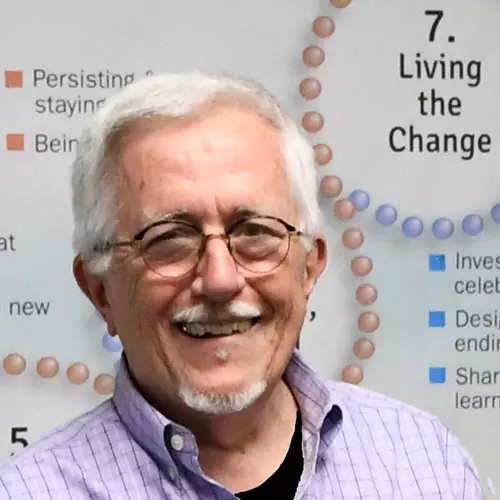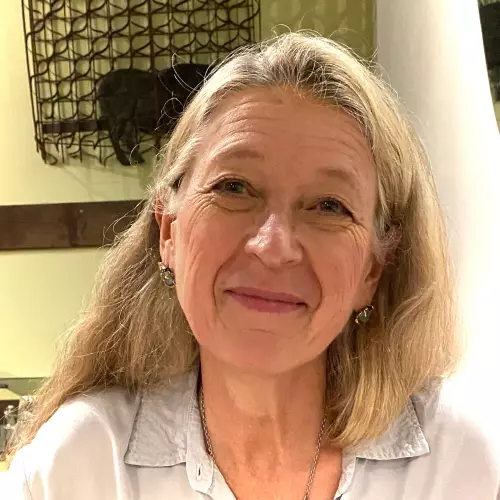Across the Threshold: Liminality & Transformative Change
Gisela Wendling and David Sibbet
Gisela Wendling and David Sibbet
This course explores underlying patterns found to be universally applicable in change processes, along with principles and practices that support personal change awareness. Students will be invited to explore their own experiences with change and apply the differences between circumstantial, volitional, and developmental change to their own history. As well, through the lens of case study we will examine basic practices for designing outer process structures for change and identify internal dynamics of moving such as denial, trauma, conflict, elevation, and other predictable phenomena that arise during change. The course also explores ways of designing and facilitating change in organizational and larger social systems.
In addition, the course orients students to the growing literature on liminality and ways to expand one’s acceptance of and ability to move through the rich territory of the “in-between” spaces and processes in our own lives.

DAVID SIBBET is founder of The Grove Consultants International and Co-Director of the Global Learning & Exchange Network (GLEN). He is a master graphic facilitator, information designer, and considered a leader in the booming field of visual facilitation. The Grove is a full-service organization consulting firm based in San Francisco and is hub to a global network of associates, partners, and other visual practitioners. The GLEN is a. non-profit sponsored by The Grove and focuses on evolving new approaches to collaboration and cross boundary work. David is author of the best-selling Visual Facilitation Series from Wiley & Sons, including Visual Meetings, Visual Teams, Visual Leaders and Visual Consulting: Designing & Leading Change, co-authored with Gisela Wendling, PhD David is also designer of the Grove’s Sustainable Organizations Model, the Drexler/Sibbet Team Performance System, the Grove’s Visual Planning Systems, and author of The Grove’s Facilitation Series. He holds a master’s degree in Journalism from Northwestern University, a BA in English from Occidental College, and a Coro Fellowship in Public Affairs. In 2013 he was awarded the Organizational Development Network’s lifetime achievement award for creative contribution to the field of OD. He is also president of California Poets in the Schools. For further information — www.thegrove.com, www.glencommunity.org and www.davidsibbet.com

Meridian faculty Gisela Wendling, PhD is Vice President for Global Learning at The Grove Consultants International, www.thegrove.com, and co-directs with David Sibbet the Global Learning and Exchange Network, www.glencommunity.org, focused on awakening and strengthening collaborative relationships, methods, and tools to address the central challenges of our time. Gisela is German-born, immigrated to the US in her early 20’s, and has had field experiences with traditional people and their practices to support individual and community healing across four continents. Integrating her cross-cultural background and experiences as organizational consultant let her to design the Liminal Pathways Change Framework. She is currently completing a research study examining how change leaders and facilitators have used her framework in their practice to bring about human systems change. www.giselawendling.com
We All Have Experienced Change
Change Agency - Mastering Liminal Space
Findings from Applications of the LPFC to a range of Contexts
Process Design and Facilitation of Organizational Change
Creating Crucibles for Change Intentionally
Design Thinking and Workshopping as Liminal Spaces
$250, including the synchronous course video calls (with recordings), online learning platform access, participation in the course learning community, plus course resources and written activities.
Meridian University is accredited by the Western Association of Schools and Colleges (WASC) - a higher education accreditor recognized by the United States Department of Education. WASC is also the accreditor for Stanford University, UCLA, and the University of California at Berkeley.
Meridian’s online courses are conducted via the University's own learning platform.
Our online courses promote community learning, through strong interactive engagement with fellow students and faculty as well as live video sessions with faculty.
You will need an email account, a high-speed internet connection, and access to a computer, iOS or Android device.
If you are planning to attend the course video calls live, you will need a webcam and microphone for your device. (Course video calls are conducted with participants video-enabled.)
Live 75-min video sessions with faculty and fellow students will be conducted throughout the course. Each week's live video call will be recorded and posted on the course platform.
Video presentations, readings, discussions and learning activities will be accessible asynchronously and may be completed on participants' own schedule. Course resources and recordings will remain available up to 30 days after the close of the course.
Full refunds are available until two (2) days before the course begins, by request via email.
You do not need to apply to a Meridian graduate degree program to take this online course. This course is one of Meridian’s open-enrollment courses
The course support team will be available to assist from start to finish. Please send your questions/requests/issues to openenrollment@meridianuniversity.edu
Convening faculty generally lead each live session. Contributing faculty typically contribute in one of the live course sessions. Course resources address the work of both convening and contributing faculty.
Meridian has institutional and federal financial aid options for our graduate degree programs. This open enrollment course does not have financial aid or payment plans available.